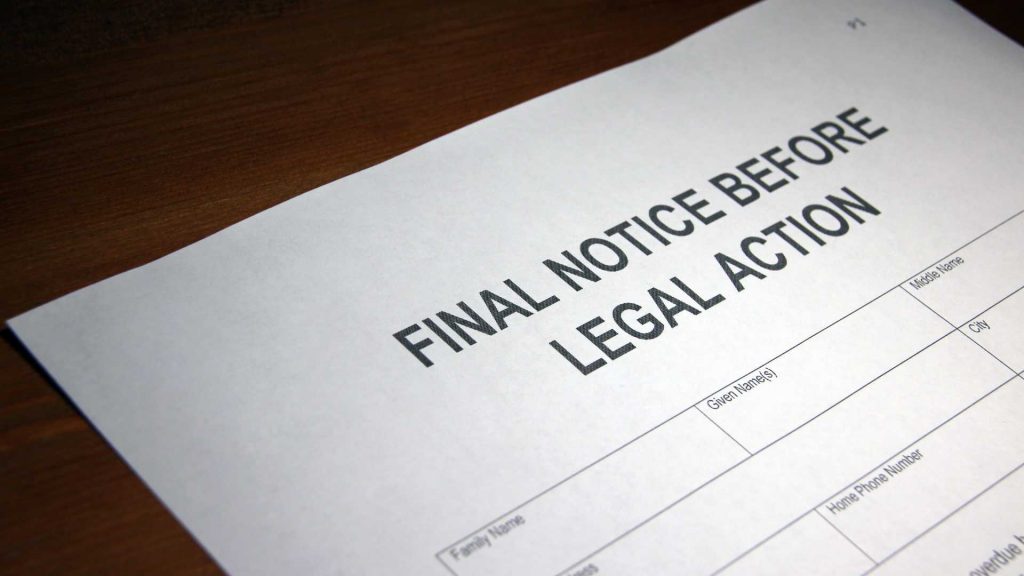April 22, 2024
Section 129 letter

Section 129 letter or letter of demand must include the following information
- Your personal details including your ID number and physical address.
- The section 129 notice should clearly state the credit agreement which is in default as well as the specific amounts and payment terms.
- The letter should also clearly state that it is a “Notice in terms of section 129 of the National Credit Act”.
- The letter should clearly state that you have 10 days to respond to the letter and detail the options you have to remedy the situation.
- The letter should state that you have Debt Review as an option to you and that if you feel it’s necessary, you should contact a registered Debt Counsellor.
What is a Letter of Demand or a section 129 letter?
The National Credit Regulator estimates that more than 10 million South Africans have fallen far behind on their debt. That means a lot of creditors are sending out a lot of threatening Letters of Demand. A letter of demand may feel intimidating and frightening, but it’s not the end, it’s the start of regaining control of your finances.
First, let’s look at the difference between the two notices.
A letter of demand is derived from the Common Law Act prior to 2005 and it has no standard time frames, but relies on the terms and conditions given in the credit agreement in order to protect the credit provider from loss. The letter of demand will require the court to revisit the specific agreement to determine whether the credit provider’s claims are reasonable and fair.
The section 129 letter is derived from the National Credit Act of 2007 (NCA). Unlike the letter of demand, this notice stipulates certain timeframes into the default recovery process before enforcing the rights of the credit provider. It’s also meant to educate the consumer about the various ways of managing the debt, as well as to protect them from further legal action.
What to do with a Section 129 letter
The sooner you respond, the better. This is possibly one of your last opportunities to prevent legal action from your creditors.
The credit provider or their attorney will issue the notice after you have been in arrears for more than 20 business days, and gives you 10 business days grace after the notice has been delivered. However, the credit provider may not start any legal proceedings without having complied with NCA requirements as stated in section 129 and 130.
Know your rights
In terms of the NCA, the creditor can only issue a notice once your credit agreement has been in arrears for more than 20 days. After that, you have 10 days to respond to the letter, otherwise the creditor is well within their rights to start legal proceedings. You really want to avoid the legal trouble for a couple of reasons:
- Interest: the longer your debt remains unpaid the higher the interest the bigger the final number you need to pay.
- Legal fees: once the legal process has started, you’d be liable for various legal fees too.
Now that you have received the letter of demand, you need to know what to do to avoid legal action. The Court may not allow any formal proceedings to be initiated if you have referred the matter to a certified debt counsellor, alternative dispute resolution agent or if the matter is already before the Consumer Court or Ombudsman.
All of these are options to avoid legal action and can help you protect your assets from repossession. Failing this, the Court may prove that you were properly notified of your debts before allowing property to be seized to cover the outstanding debt.
Remember that once you’re in debt review, the credit agreements already in a legal process can’t be included in your debt review process. Those instalments will remain the same, and can’t be reduced. It’s better to start debt counselling as soon as you receive the first letter of demand. Yes it’s daunting, and yes it’s hard to ask for help and be vulnerable about your financial situation, but it’s the best thing you can do for your future self. A debt counsellor will help you consolidate your debt and help you negotiate instalment with your creditors that suits your cash flow situation.
5 Quick steps to handle your debts:
- Ask for help, get debt counselling as soon as you realise you’re in trouble
- Strike while interests rates are low, you’ll pay less in the long run
- Know your rights when you respond to the notice
- Stick to the payment plan
- Don’t take on new credit agreements while you’re paying off existing ones.
Debtline managed to secure a reckless credit complete write-off on two credit provider accounts for a consumer, totaling R117,690.76. Our core focus is helping people get rid of their debt while retaining dignity. Sign up with the debt counsellor that takes pride in being on the consumer’s side.
If you have received letter(s) of demand and the creditors have not started legal proceedings, let Debtline help you.